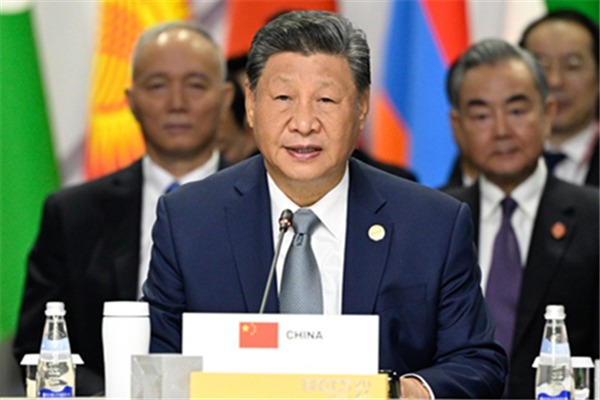Shanghai opens annual Lujiazui Coffee Festival

Shanghai continues to lead China's coffee market with 9,553 coffee shops, officials announced during a news conference on Wednesday at the opening of the Lujiazui Coffee Festival in Pudong New Area.
Jin Wencheng, director of the Ministry of Agriculture and Rural Affairs' rural economy research center, released the Global Coffee Industry Development Trends Insight Report and related index at the event, highlighting that China's annual coffee consumption reached 280,000 metric tons last year, with customers patronizing approximately 157,000 coffee shops nationwide.
Jointly launched by the China Media Group Shanghai Bureau — the financial program center of CMG — and the research center, the report further pointed out that the value of the coffee industry in China reached 265.4 billion yuan ($37.3 billion) in 2023, an increase of over 30 percent year-on-year. The number of coffee consumers in the country is close to 400 million.
"The Chinese coffee market has seen significant expansion, emerging as a standout in the global coffee industry," Jin said, adding that the report and index are constructed based on three key dimensions: industry scale, development quality and industry resilience.
China's coffee production increased from 114,000 tons in 2020 to 146,000 tons last year, the report noted. Yunnan province accounts for 98 percent of the national output, making it the primary coffee-producing region in China.
"Refinement and branding are leading the high-quality development of the domestic coffee industry in China," said Jin, noting that the proportion of premium domestic coffee products has significantly increased, reaching 22.7 percent this year.
"Domestic coffee brands are rapidly emerging, and the fusion of coffee culture with tourism has become a new business model," Jin added.
On a global scale, coffee production has shown a growth recovery, according to the report.
Last year, global coffee consumption reached 10.62 million tons, marking a 2.2 percent increase from the previous year, with a total daily consumption of 3 billion cups of coffee.
Apart from the emerging market in China, countries and regions such as Brazil, the Philippines and South Korea are also experiencing rapid growth in coffee consumption.
The bustling crowd of coffee enthusiasts at the Lujiazui Coffee Festival — the news conference venue — attests to the fervor of the coffee market.
Shanghai, which has more coffee shops than any city in China, launched the ninth edition of the coffee festival on Wednesday, which will run until Oct 27.
Taking place at Shanghai's Lujiazui Central Greenland, the festival brings together over 260 selected brands, more than 100 boutique coffee shops and over 20 influencers from the industry hailing from over 70 cities worldwide. It serves as a platform for the exchange of creative ideas and the exhibition of the latest coffee-related products.
Manhattan Coffee Roasters from Rotterdam, Netherlands; Ghostbird Coffee Roastery from Kuala Lumpur, Malaysia; and Proud Mary Coffee Roasters from Melbourne, Australia, are among the 12 international specialty coffee brands that are making their domestic debut at the festival.
Since its inception in 2016, the festival has become a benchmark cultural experience in the coffee industry in China, drawing the cumulative participation of over 850,000 people.
"As the brand influence of the Lujiazui Coffee Festival continues to grow, it will not only bring more global coffee flavors to Pudong, but also explore new pathways for Chinese domestic coffee to enter the international market," said Chen Bai, director of the festival.
Li Junfeng contributed to this story.
heqi@chinadaily.com.cn
- Shanghai opens annual Lujiazui Coffee Festival
- Keeping old style alive
- Traditional or Western treatment? Often the solution is both
- Ten photos from across China: Oct 18 – 24
- China targets funeral industry corruption in new anti-graft campaign
- Beijing Daxing Airport to launch new international routes




































